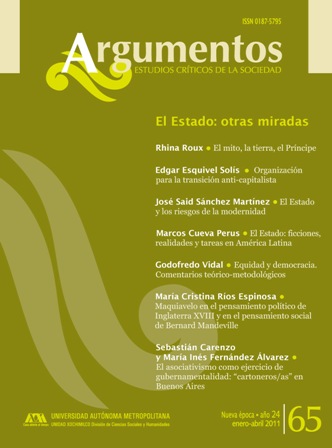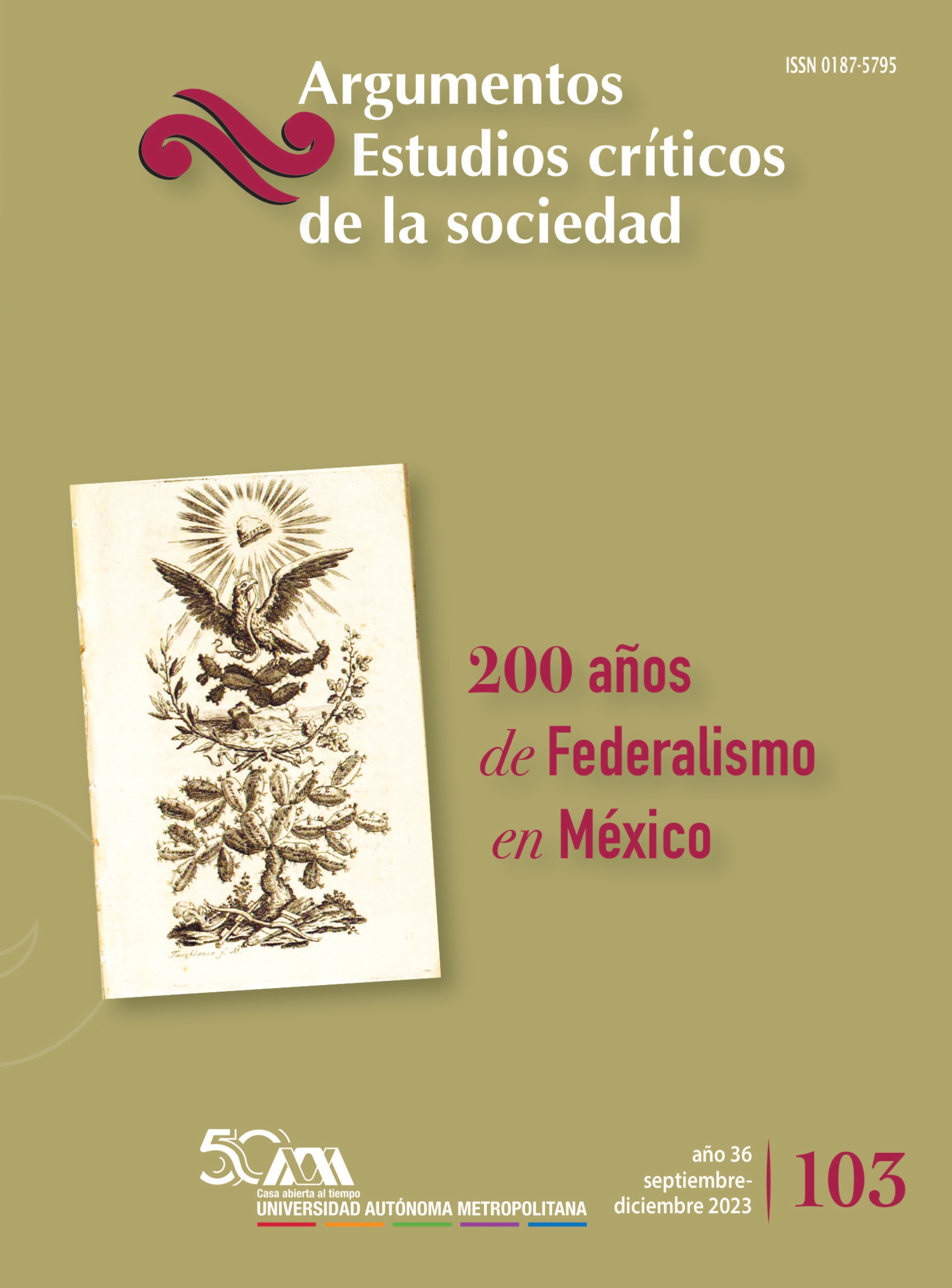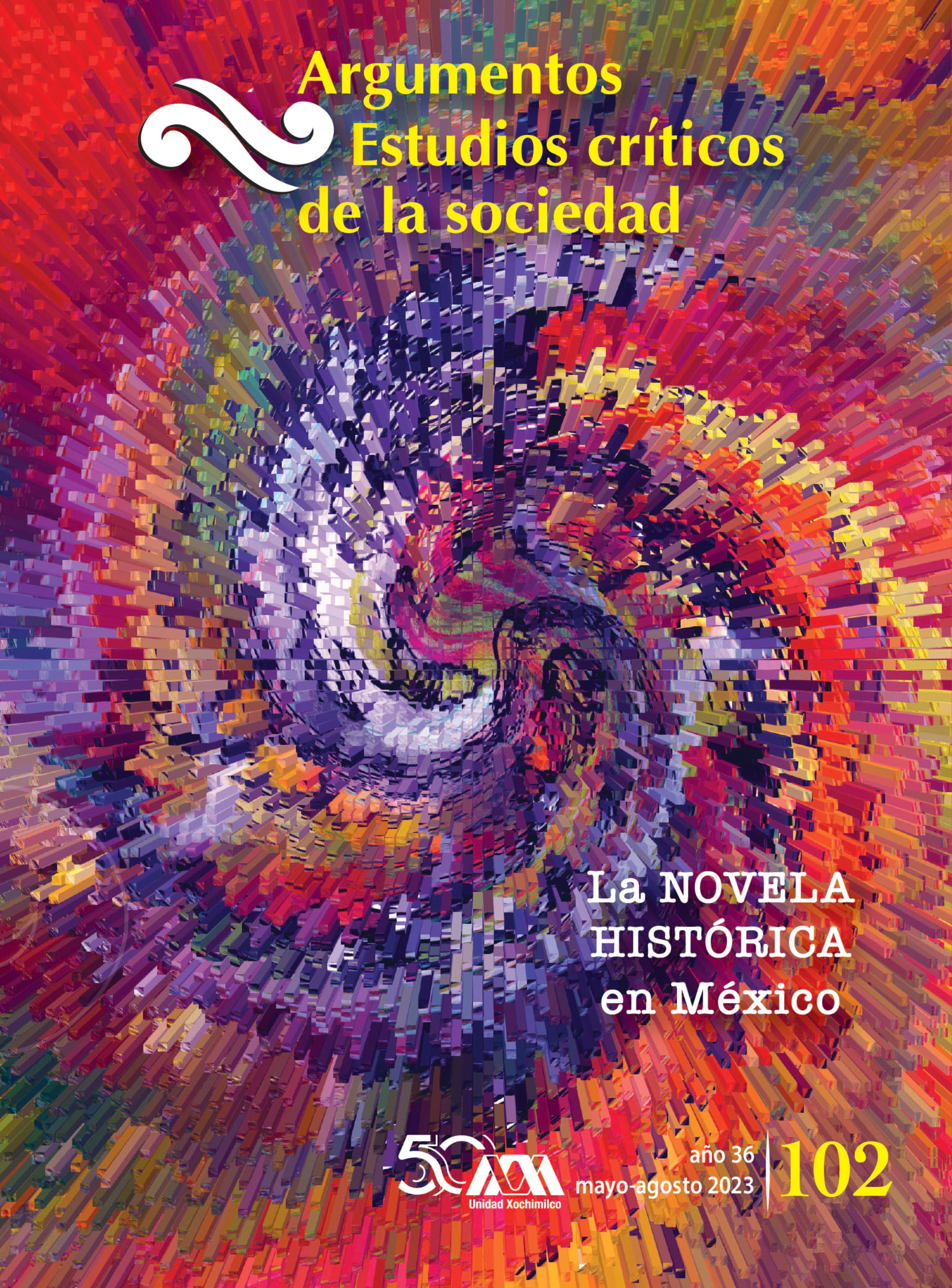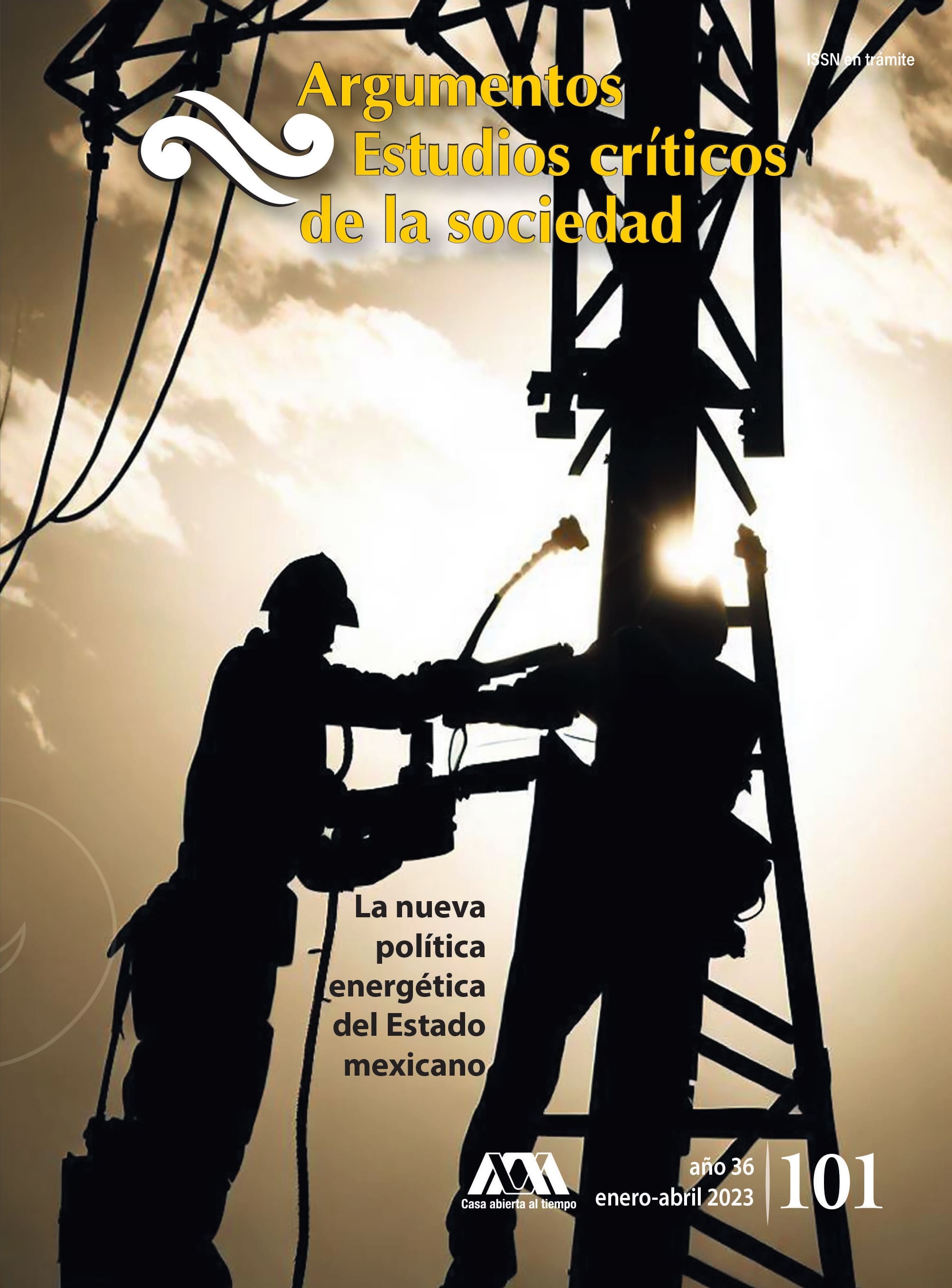Equidad y democracia.
Comentarios teórico-metodológicos
Palabras clave:
modernización, democratización, equidad política, desigualdad social, ciencia política, teoría democráticaResumen
Este ensayo aborda el debate actual, en la teoría democrática empírica, sobre las relaciones causales entre equidad y democracia, así como entre modernización y democracia. Examina los principales argumentos de las disciplinas de la economía política, la ciencia política, para concluir que se trata de un debate inconcluso. Contrariamente a la visión de la democracia como panacea y la culminación de la modernización, se observa un agravamiento de la desigualdad social en los procesos de emergencia de las democracias nuevas, pero también en las democracias maduras, que no ha sido debidamente explicado
Citas
Acemoglu, Dan y James A. Richardson, Economic Origins of Dictatorship and democracy, Cambridge University Press, Nueva York, 2006.
——, “A Theory of Political Transitions”, The American Economic Review, vol. 91, núm. 4, septiembre, American economic Association, 2001.
——, “Oligarchic vs Democratic Societies”, Journal of the European Economic Association, vol. 6, núm. 1, marzo, 2007.
American Political Science Association (APSA), The Persistent Problem: Inequality, Difference, and the Challenge of Development, Report of the Task force on Difference, Inequality and Development Societies, julio, 2008.
Ansell Ben y David Samuels, “Inequality and Democratization”, Documento presentado en the MPSA Annual National Conference, Chicago, Illinois, 3 de abril de 2008 [http://bit.ly/hBXFTN] , fecha de consulta: 16 de abril de 2009.
Banco Mundial, Gobernabilidad democrática en México. Más allá de de la captura del Estado, Informe núm. 37293-MX, BIRF, México, 2007.
Barro, Robert J., “Determinants of Democracy”, Journal of Political economy, vol. 107, núm. 6, diciembre, Parte 2: Symposium on the economic Analysis of Social Behaviour in Honour of Gary S. Becker, The University of Chicago, 1999.
Boix, Charles y Susan C. Stokes, “Endogenous Democratization”, World Politics, vol. 55, julio, 2003.
Boix, Charles, Democracy and Redistribution, Cambridge University Press, 2003.
Brittan, Samuel, “The Economic Contradictions of Democracy”, British Journal of Political Science, vol. V, núm. 1, 1975.
Dahl, Robert A., Democracy and Its Critics, Yale University Press, 1991.——, On Political Equality, Yale University Press, 2006.——, Poliarchy, Yale University Press, 2003.
Diamond, Larry, “Thinking about Hybrid Regimes”, Journal of democracy, vol. 13, núm. 2, abril, 2002.
Epstein, David et al., “Democratic Transitions”, American Journal of Political Science, vol. 50, núm. 3, julio, Midwestern Political Science Association, 2006.
Gradstein, Mark y Branko Milanovic, “Does Liberté=Egalité? A Survey of the Empirical Links between Democracy and Inequality with some Evidence on the Transitions Economies”, Journal of Economic Surveys, vol. 13, núm. 4, 2004.
Guerrero, Isabel y Michael Walton, Las trampas de la desigualdad y su vínculo con el bajo crecimiento de México, Banco Mundial, 2006.
Hall, John y John Ikenberry, El Estado, Nueva Imagen, México, 1991.
Huber, Evelyne et al., “Politics and Inequality in Latin America and the Caribbean”, American Sociological Review, vol. 71, diciembre, 2006.
Huber, Evelyne; Thomas Mustillo y Joseph Stephens, “Politics and Social Spending in Latin America”, The Journal of Politics, vol. 70, núm. 2, abril, 2008.
Huntington, Samuel, Political Order in Changing Societies, The Henry L. Stimson Lectures Series, Yale University Press, 1968.
Lagos, Martha, “Latin America’ diversity Crisis”, Journal of Democracy, vol. 19, núm. 1, enero, National Endowment for Democracy, 2008.
Landa, Dimitri y Ethan Kapstein, “Inequality, Growth and Democracy”, World Politics, vol. 53, enero, Jonh Hopkins University Press, 2001.
Linz, Juan, La quiebra de las democracias, Alianza editorial, Madrid, 1987.
Lipset, Seymour Martin, “Some Social Requisites of Democracy: Economic Development and Political Legitimacy”, American Political Science Review, vol. 53, núm. 1, American Political Science Association, 1959.
——, “The Social Prerequisites of Democracy revisited”, American Sociological Review, vol. 59, núm. 1, American Sociological Association, Nueva York, 1994.
Lucero, José Antonio, “Indigenous Political Voice and the Struggle for Recognition in Ecuador and Bolivia”, en Anthony J. Bebbington et al. (eds.), Institutional paths to Equity, Addressing Inequality Traps, Banco Mundial, Washington DC, 2008.
Mann, Michael, The Sources of Social Power, vol. 2, “The Rise of Classes and Nation States”, 1993.
McAdams, Doug, Sidney Tarrow y Charles Tilly, Dynamics of Contention, Cambridge University Press, 2001.
Meltzer, Allan H. y Scott F. Richardson, “A Rational Theory of the Size of Government”, Journal of Political Economy, vol. 89, núm. 5, The University of Chicago, 1981.
Moore, Barrington, Los orígenes sociales de la dictadura y de la democracia. El señor y el campesino en la formación del mundo moderno, Península, Barcelona, 1973.
Mueller, Dennis C., Public Choice III, Cambridge University Press, 2003.
North, Douglass, John Joseph Walls y Barry R. Weingast, Violence and Social Orders. A Conceptual Framework for Interpreting Recorder Human History, Cambridge University Press, 2009.
Programa de las Naciones Unidas para el Desarrollo (PNUD), Informe sobre el desarrollo humano. Los objetivos del desarrollo del milenio. Un pacto entre naciones para eliminar la pobreza, Ediciones Mundi-Prensa, 2003.
Przeworski, Adam, “Una defensa de la concepción minimalista de la democracia”, Revista Mexicana de Sociología, vol. 59, núm. 3, julio-septiembre, 1997.
—— et al., Democracy and Development. Political Institutions and Well-Being in the World 1950-1990, Cambridge University Press, Nueva York, 2000.
Przeworsky, Adam y Fernando G. Limogi, “Political Regimes and Economic Growth”, Journal of Economic Perspectives, vol. 7, 1993.
Ross, Michael, “Is Democracy is good for the Poor?”, American Journal of Political Science, vol. 50, núm. 4, Midwest Political Science Association, 2006.
Schmitter, Philippe, “The Ambiguous Virtues of Accountability”, The Journal of Democracy, vol. 15, núm. 4, octubre, National Endowment for Democracy, 2004.
Sen, Amartya, Development as Freedom, Anchor Book, Nueva York, 1999.
Shapiro, Ian, The State of Democratic theory, Princeton University Press, Princeton/Oxford, 2004.
Skocpol, Theda, Protecting Soldiers and Mothers. The Political Origins of Social Policy in the United States, The Belknap Press of Harvard University Press, Cambridge, Massachusetts, 1992.
Steven, Daniel, Benjamin G. Bishin y Robert R. Barr, “Authoritarian Attitudes, democracy and Policy Preferences among Latin American Elites”, American Journal of Political Science, vol. 50, núm. 3, julio, Midwest Political Science Association, 2006.
Tilly, Charles, Democracy, Cambridge University Press, 2007.
——, Durable Inequality, Los Angeles, University of California Press, 1998.
Tocqueville, Alexis de, Democracy in America, 1835 [http://bit.ly/i1bjSC].
Verba, Sydney, “Would the Dream of Political Inequality Turn out to Be a Nightmare?”, Perspectives on Politics, vol. 1, núm. 4, diciembre, 2004.
Vidal de la Rosa, Godofredo, La ciencia política estadounidense. Trayectoria de una disciplina, Miguel Ángel Porrúa, México, 2006.
——, “La madre de todas las disputas. Desigualdad y democracia”, El Cotidiano, núm. 160, año 25, marzo-abril, México, 2010.
——, “Teoría democrática. Joseph Schumpeter y la síntesis moderna”, Argumentos. Estudios críticos de la sociedad, vol. 23, núm. 62, UAM-Xochimilco, México, 2010.
Walton, Michael, “Neoliberalism in Latin America. Good, Bad or Incomplete?”, Latin America Research Review, vol. 39, núm. 3, The University of Texas Press, 2004.
Williamson, John, “Democracy ant the ‘Washington Consensus?”, World Development, vol. 21, núm. 8, Elsevier, 1993.
World Bank, Inequality in Latin America and the Caribbean. Breaking with History?, Advanced Conference Edition, Washington DC, 2003.
——, Institutional Governance in Mexico. Beyond State Capture and Social Polarization, México, 2007.
——, World Report on Development. Equity and Development, Banco Mundial, Washington DC, 2006.








